Bugging out is the ultimate survival strategy, reserved for those times when your home becomes untenable and you are forced to leave for your family to survive.
But let’s face it; it’s the last resort because it will be hard to survive after you bug out. Leaving your home and everything it contains to attempt to survive elsewhere is going to be a huge challenge unless you happen to be one of the few people who can afford that cabin in the woods we all would love to have.
Even surviving in that cabin in the woods will be challenging if you haven’t made the proper preparations or if someone came along later to steal them. But it will also add new challenges to the list because no matter how well you prepare that survival retreat, there are things that won’t be as well prepared as they were back home.
Take gardening, for example; it generally takes a whole year to get the soil well established for a garden. So, unless you regularly go to your survival retreat and work a garden there, you probably won’t be able to count on a good harvest the first year after going through all the work to dig up the ground and displace what’s already growing there.
What concerns me is that few preppers seem to have bothered to think about that sort of thing. From what I see, people talk about bugging out as if it is their end game, and once they do it, everything will be fine, and they’ll live happily ever after. But where’s the plan to make that happen?
Even with the cabin in the woods, you’re going to need food to eat and other supplies. While I’ve written about creating a food cache at your bug-out location, I wonder how many people do that. Of those that do, how many have a year’s worth of food stockpiled there? What are they going to eat when their food runs out? Living off the land is anything but easy.
Any bug-out plan which doesn’t take into detailed consideration how you’re going to survive at your survival retreat is incomplete, as far as I’m concerned. Finally, making it to that retreat, only to find that you’re not ready for long-term survival, would be the worst sort of infamy, making everything else you’ve done of no value at all.
You’ve Got to Have a Survival Retreat
No matter what sort of bug out you might be planning, you’ve got to have a survival retreat to go to. That may be nothing more than a motel for a short-term survival situation. But when it comes to a long-term survival scenario, you’re not going to be able to stay in that motel.
So, what will you stay in? You’ve got to have some shelter. I don’t care if that’s an abandoned building, just as long as you can keep the weather out and make it relatively comfortable to live in. If there isn’t something you can use, do you have a realistic plan for building something? I don’t mean a pie in the sky idea, but a practical project.
I know that thousands of settlers built log cabins, soddies, and other houses out of the available materials when they moved west in the early days of US history. That’s an option. But if you’re going to do that, you’d better make sure that you have the appropriate tools with you. The pocket chain saw, and tomahawk in your bug-out bag aren’t going to be enough to build a log cabin with.
You don’t have to limit your thinking to log cabins alone. I’ve seen people who have built yurts to use as their survival retreat. That would work, as the yurt can be a relatively comfortable home. I’ve also seen people who have travel trailers for their bug out. Having lived for nine years in a motorhome, I know that one will work as well. But if all you have is a backpacking tent to live in, you might want to rethink your long-term shelter options.
Will This Be Happily Ever After?
The first thing we’ve got to face is whether the bug out is a temporary one or a permanent one. The two are not the same, even though we talk about them as if they were. When the people of southeast Houston were forced to evacuate during Hurricane Harvey, they knew that they’d be going back home. But the same can’t be said of the people of Paradise, California after wildfires leveled their town. While many have gone back, all they had waiting for them was the foundations of their homes and a lot of ash.
There are multiple issues here, including whether or not your home will be there for you to go back to and whether things will settle down to the point where it will be safe to return. As with much else that we prepare for, there’s no natural way of knowing this ahead of time, as there are many factors to consider.
Regardless, going back won’t be going back to how things were before. Both the residents of Houston and Paradise didn’t find their homes the way they left them. In the case of Houston, homes and possessions were severely damaged by flooding. In the Paradise fire, the houses were gone.
With examples like this, going back might not be all that good an idea. But then, will your survival retreat work as your home for the rest of your life. I’m not talking guys roughing it in the woods working out; I’m talking raising a family with women in it working out. That’s a whole other story. If your retreat doesn’t meet those standards, will you be able to upgrade it to that point after bugging out? If not, then what’s your plan?
Resources at Your Survival Retreat
We all know the importance of having food, water, and other critical supplies stockpiled. But the reality is that few of us have the resources to build as significant a stockpile at our survival retreat as we have at home. We either develop our big stash at home, hoping that we’ll be able to bug in, or we build the big stockpile at our retreat, with the idea of bugging out early.
Of those two options, I’d say the second is better if you have that cabin in the woods. If not, putting your primary stockpile someplace other than your home doesn’t make any sense. Even so, you will need enough resources at your survival retreat to see you through until you can get your food production up to speed. How long is that going to take?
Eventually, you’ll either have to be living off the land or growing your food to survive a long-term bug out. But can you? Do you have the tools, seed, and other necessities to start raising several tons of food per year? Do you have the means to preserve it?
Many people starved to death during our country’s western expansion, mainly because their crops didn’t come in. And that was in a time when it was much easier to live off the land. There was a lot more wild game back then and a lot more forest land for it to live in. So living off the ground is probably not a good plan for long-term survival, although if you’re far away enough from others, you should probably be able to use hunting and fishing to augment whatever food you are growing.
You’re Going to Need Others
No matter where you go in your bug out, you’re going to need others to survive. Humans are social creatures designed to live in an orderly society, regardless of what form that community takes. Without others, the most we can expect to survive is one generation, and we’ll probably end up with that one generation being cut short if we’re alone.
Who are your kids going to marry if you’re off in the wilderness by yourself? Isn’t that part of survival? If they don’t have anyone to marry, then you’re dooming your family to death once your children die. Not only that, but you’re condemning your children to live a life alone, something they’re probably not going to want to agree to. So, where will their spouses come from?
If you’re part of a survival team, you’ll at least have a few other people with you. But even that’s not enough; unless you’ve decided to consign yourself and your family to a primitive lifestyle for the rest of your lives. Instead, you’re going to need people with a wide variety of skills, especially the types of craftsmanship of days gone by, people who can make things by hand, with a limited number of manual tools.
You probably won’t have that at your survival retreat, even if you are part of a survival team. The reality is that most of those sorts of skills are rare, meaning that we’re unlikely to find people like that to add to our team. We’d probably be better off having everyone in the group choose one of those skills to learn.
It takes a village to meet all the needs we have if we’re going to progress past the point of barely surviving. So where’s your village? What’s your plan to come up with one? How are you going to find the people you need so that you can build a functioning community?
Can You Rebuild Society?
Ultimately, any long-term bug-out must somehow result in rebuilding society, even if that means just rebuilding a small part of society.
The good news is that by the time you or I look at creating a community, probably the only people around to make it will be much like us or those of the criminal element that have managed to survive. Those criminals are one of the reasons why society developed in the first place. The need to defend ourselves from “others” caused our ancient ancestors to gather together and form communities for self-defense. Building walls around those communities made the difference between “us” and “them” even more significant.
Probably the best place to start is with an existing rural community. Those people are more likely to be the like-minded people you need. They’re also the kind of people who will work with you once you gain their trust. Integrating yourself in such a community before a disaster, even if you don’t live there, will give you the chance of working with them in a post-disaster world.
The other thing to do is to start looking for and actively recruiting people with the skills that will be needed in that post-disaster world. Whether you help them become preppers, ask them to join your survival team, or make a note of them, having people available who have the skills you need will make it much easier to create a community.
What About Going Back?
Of course, there is always the possibility of going back home after things settle down… or is there? Will your home be there, and if it is, will your community be?
Chances are if you end up in a long-term bug out, there’s not going to be any going back. One of the key reasons people will be bugging out will be the cities becoming uninhabitable due to lack of resources and rising crime. That isn’t going to turn around unless it does so after society is reestablished. So any idea of going home would have to come later.
Besides that, would you want to go back after your life there has been destroyed? I’m not talking about going back after Hurricane Harvey; I’m talking about going back after the collapse of modern society. Will that old home ever really be home again? I don’t think it can.








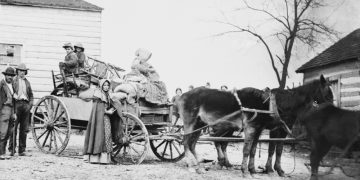




















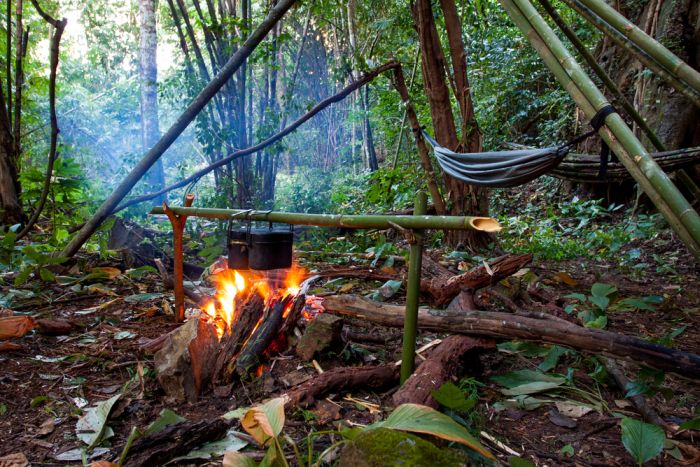



































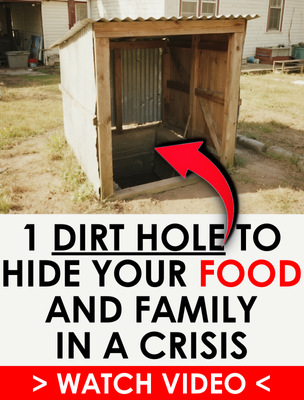
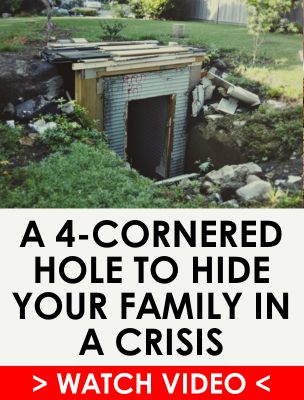

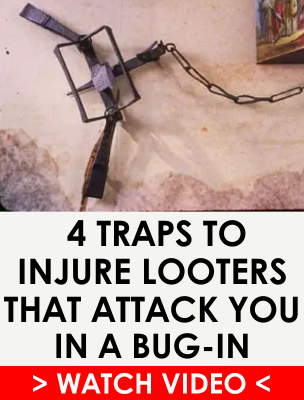
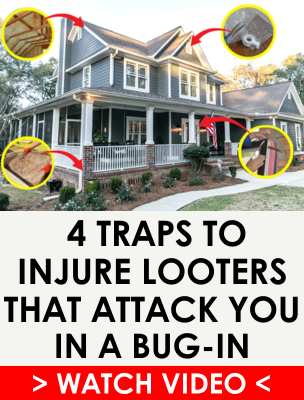






How depressing Bill. No nonsense in this post and little hope of a successful/prosperous outcome. Short of building a significant retreat or commune of like minds, with diverse skills and having other such established communities relatively close by to work, barter & reproduce with, well – we will be one or two generations away from extinction. I don’t disagree with anything you said, I agree with it all, but it is sad to “see it” for what it really is. Yes, I have multiple bug out locations with water & land. I’m a gardener with a variety of skills and have been a perpetual prepper since the ’80’s, but I’ve always known that if there is a real collapse, all my preps are simply a delay tactic until things turn around or I die.
Thanks for the reality check!!